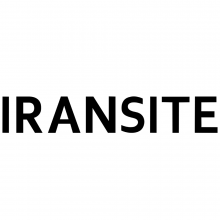
There are 11 Companies in Iran
that provide NodeJS Development Services!
Iran has a highly skilled workforce, including a significant number of talented IT specialists. The country has a vibrant and growing tech sector, with several successful startups and established companies in the fields of software development, e-commerce, and cybersecurity. These companies have been able to leverage Iran's large, educated population to build competitive IT products and services.
Discover Top IT Companies in Iran specialized in NodeJS and other related services. Find the best IT service providers for your projects.
Node Js is a JavaScript runtime environment that allows developers to run JavaScript code on the server-side. Unlike traditional server-side technologies like PHP or Ruby, which are typically used for handling server tasks, Node.js enables developers to use JavaScript for both client-side and server-side development.
Handpicked companies • No obligation to hire • 100% risk-free
Featured Companies in Iran
This month, the following NodeJS Development companies managed to provide an outstanding service and support. It's worth taking a look.
We are developing software solutions for businesses and empowering them to grow. Our priority is developing and delivering high-quality software.
A results-driven software team delivering custom websites, apps, and digital solutions built for growth.
Fika, Your Partner in Growth with Love. Let us help your brand achieve remarkable success!
Explore Top NodeJS Development Companies in Iran
Nardeban Digital group is a pioneer startup, aiming to design beautiful flawless websites and make them more visible by applying best practices in SEO
Services:
iransite is the first webdesign company in iran that promotes many kind of digital marketing services in 2025.
Services:
web design and web development company in iran, we use most creative ways by most new technologies to create fantastic products
Services:
With over 15 years of successful presence in the field of digital technologies Recognized as a Creative Company in Iran
Codeino company operates with more than 40 employees and professional programmers in the fields of website design, programming and digital marketing
Services:
KouroshWeb is a digital marketing , web design and development company in IRAN.
Services:
Welcome to Lidoma, where ideas become reality and we bring lasting experience to businesses. As a leading team in the field of business development, we provide unique and professional services in the digital world under the brand name "Lidoma"
Services:
YASAN-Co is the best Web Development and SEO Company in Tehran, Iran. شرکت توسعه فرآیندهای یاسان، بهترین شرکت طراحی، توسعه، سئو و بهینه سازی وب سایت
Services:
Filter NodeJS Development Companies in Iran by Cities
Find the right tech company near you or from a specific city. Some of the best companies might be located in smaller cities.
Find more NodeJS Development companies around the world
TechBehemoths is the world's most advanced and user-friendly platform to match IT Companies with real clients without hustle.
The Iranian ICT Industry: Tech Companies & Performance
Iran has a highly skilled workforce, including a significant number of talented IT specialists. The country has a vibrant and growing tech sector, with several successful startups and established companies in the fields of software development, e-commerce, and cybersecurity. These companies have been able to leverage Iran's large, educated population to build competitive IT products and services. Therefore, the country has significant potential in the IT sector, which could play a crucial role in the future development of the Iranian economy.
Why You Should Work With Iranian IT Companies
The IT sector is still passing through a transition period, and finding clients from other countries than itself may be extremely challenging for local IT companies. But if you have the chance of working with Iranian IT companies, there are at least two reasons to do it.
First, Iranian IT companies will charge you less than other companies from neighboring countries. With all these, Iranian web and digital agencies will provide good services and use the same technologies in project execution as Western or Asian companies would do.
The second reason is that companies are told to be fast-adapting and responsive. It is also worth noting that Iran's large population, strategic location, and vast untapped market have made the country an attractive destination for foreign companies. Iran has a well-educated and youthful population, with over 90 million people, and it serves as a gateway to the broader Middle East and Central Asian markets.
What You Should Be Aware of When Working With Iranian IT Companies
Now, on the other hand, there is little chance to work with an Iranian IT company if you are from Europe or the US. Due to the imposed sanctions, there is a full checkup of who you are and where you are from if entering the country. The security reasons for many are a barrier to accessing the Iranian ICT market.
Also, the style of working and delivering projects may be different from what you are used to, and, like in all other cases, you are never guaranteed that the product or service will be delivered on time and in good shape.
Moreover, according to Salman Mohammadi from Nardeban Digital Group, a top Iranian IT company, although there might be some differences in the workflow among Iranian companies compared to the EU and North America, you can expect good results after some time. You might need to clarify your expectations before the start of projects to avoid future challenges.
How Reliable Are Iranian IT Companies
In terms of reliability, it is difficult to estimate whether Iranian digital agencies are comparable to others. On the one hand, there is a need for financial resources, which should stimulate Iranian IT companies to provide services on time, well-managed, and delivered in the best shape.
But there is also the feeling of relegation that persists when working with foreign companies, which can create conditions to disobey the signed contract.
Tehran and Isfahan - The Best Places for the Iranian IT Industry
Tehran, the capital city of Iran, is the country's economic and cultural hub. It is home to many businesses, financial institutions, and government agencies, making it a center of economic activity in Iran. The city's large population of over 9 million people, diverse consumer base, and strategic location have made it an attractive destination for both domestic and international businesses. There is also Isfahan, which is located in central Iran and is the country's third-largest city and an important economic center. The city is known for its historic architecture, cultural heritage, and industrial activity, making it an attractive destination for both tourism and business.
Iran IT Talent Pool
Iran has a large population of highly talented and well-educated youth, with more than half of the population under the age of 35. Iranian youth are known for their creativity, innovation, and technical skills, particularly in the fields of science and technology.
What is NodeJS and what are its benefits for your projects?
Node Js is a JavaScript runtime environment that allows developers to run JavaScript code on the server-side. Unlike traditional server-side technologies like PHP or Ruby, which are typically used for handling server tasks, Node.js enables developers to use JavaScript for both client-side and server-side development. Below we’ll dive deeper into the types of projects built with it, and how companies can leverage it for their projects:
Node.js is built on the V8 JavaScript engine from Google, making it incredibly fast and efficient. It uses an event-driven, non-blocking I/O model, which makes it ideal for building scalable and real-time applications. Node.js is particularly well-suited for projects that require high concurrency, such as web applications, APIs, chat applications, streaming services, and more. It has a large and active community, which has led to a rich ecosystem of libraries and packages available via npm (Node Package Manager), simplifying development tasks.
As for the type of projects that can be built using Node.js, we can name the following:
- Web Applications: Many web applications are built using Node.js, often using web frameworks like Express.js. These applications can range from small personal websites to large-scale, enterprise-level platforms.
- APIs (Application Programming Interfaces): Node.js is commonly used to create RESTful APIs that allow different services or applications to communicate with each other. This is essential for building services that provide data to mobile apps, websites, and other clients.
- Real-time Applications: Node.js is favored for real-time applications, such as chat applications, online gaming, and collaborative tools. The event-driven architecture of Node.js is well-suited for handling multiple concurrent connections.
- Streaming Services: Media streaming platforms and services that deliver audio and video content use Node.js to efficiently manage and serve media files to users.
- IoT (Internet of Things): Node.js is used in IoT projects to handle data collection from sensors and devices, process that data, and communicate with cloud services.
- Serverless Functions: Node.js is a popular choice for building serverless functions or AWS Lambda functions due to its lightweight and quick startup times.
Node.js is a versatile technology that can be effectively utilized in both smaller and larger projects, but its suitability hinges on several key factors.
For smaller projects, Node.js offers distinct advantages. Its event-driven, non-blocking I/O model allows developers to rapidly prototype and develop applications. This makes it an excellent choice for creating functional prototypes, minimum viable products (MVPs), or simple web tools swiftly.
Node.js's efficiency in handling I/O operations can lead to responsive user experiences, which is valuable for small-scale applications like personal websites, blogs, or straightforward web tools. Moreover, Node.js itself is lightweight, making it suitable for projects with minimal hardware or resource requirements. It doesn't impose significant overhead, making it a cost-effective option.
Node.js is also well-suited for serving as a backend for Single-Page Applications (SPAs), handling API requests, and serving static files efficiently. Its ability to use JavaScript both on the server and client sides can reduce development costs by enabling code reuse and a single development skill set.
For larger projects, Node.js remains a compelling choice for various reasons. Its ability to handle a large number of concurrent connections positions it favorably for projects with high traffic and user loads. It's designed to scale efficiently, allowing it to distribute workloads across multiple servers or containers, making it scalable and robust.
In larger applications with complex functionality, Node.js can be employed to build microservices that communicate efficiently with each other. This modular approach enhances maintainability and facilitates development on a larger scale.
Node.js's event-driven nature also makes it an ideal candidate for larger projects requiring real-time features. It excels in managing multiple simultaneous connections, making it suitable for applications such as messaging platforms, online gaming, or collaborative tools.
Additionally, Node.js continues to offer development speed advantages regardless of project size, which can be particularly valuable in meeting tight project deadlines.
Furthermore, for larger projects with JavaScript as the primary language on both the frontend and backend, Node.js facilitates streamlined development processes, code sharing, and collaboration among teams working on different parts of the application.










